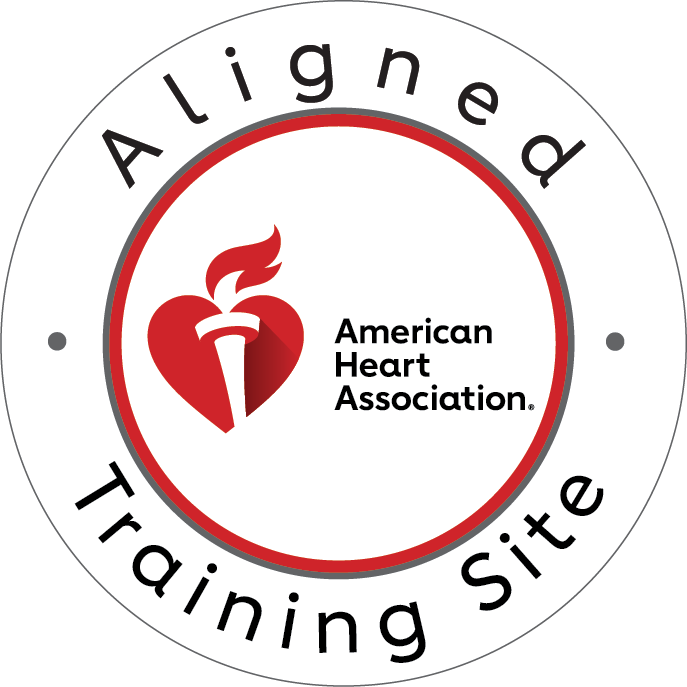I. Introduction
In the fast-paced and critical world of healthcare, advanced life support skills are essential for addressing life-threatening emergencies. Advanced Cardiovascular Life Support (ACLS) is a comprehensive course that equips healthcare professionals with the knowledge and techniques necessary to manage cardiac arrest, acute coronary syndromes, and other cardiovascular emergencies. Mastering ACLS fundamentals is a crucial step for healthcare providers seeking to enhance their clinical competence and provide the highest quality of care to patients in critical situations.
ACLS training is designed to teach healthcare professionals how to recognize and respond to various life-threatening cardiovascular emergencies. It encompasses a wide range of skills, including advanced airway management, pharmacological interventions, cardiac rhythm interpretation, and the application of evidence-based algorithms and protocols. By attending an ACLS course, healthcare providers gain the confidence and expertise to effectively manage complex cardiac events, ultimately improving patient outcomes and saving lives.
This comprehensive guide aims to provide a thorough overview of ACLS fundamentals, covering everything from the core components and algorithms to certification requirements and ongoing skill maintenance. Whether you are a seasoned healthcare professional seeking to renew your ACLS certification or a newcomer to the field, this article will equip you with the essential knowledge and resources needed to navigate the intricate world of advanced cardiovascular life support.
II. Understanding ACLS
Advanced Cardiovascular Life Support (ACLS) is a specialized program developed by the American Heart Association (AHA) to train healthcare professionals in the management of cardiac emergencies. It builds upon the foundation of Basic Life Support (BLS) and focuses on the advanced skills required to treat various life-threatening cardiovascular conditions.
The primary purpose of ACLS is to improve patient outcomes by providing healthcare providers with the knowledge and techniques necessary to recognize and respond effectively to cardiovascular emergencies. These situations may include cardiac arrest, acute coronary syndromes, bradycardia, tachycardia, and other dysrhythmias.
ACLS training is designed for a diverse range of healthcare professionals, including physicians, nurses, paramedics, respiratory therapists, and other emergency responders who may encounter cardiac emergencies in their daily practice. The course is tailored to equip these professionals with the skills and confidence needed to manage critical situations and make life-saving decisions.
Scenarios where ACLS skills are essential include, but are not limited to, emergency departments, intensive care units, operating rooms, and pre-hospital settings. Healthcare providers who possess ACLS certification are better prepared to handle high-stress situations, coordinate care among interdisciplinary teams, and ultimately improve patient outcomes in cardiovascular emergencies.
III. ACLS Core Components
Mastering ACLS fundamentals requires a comprehensive understanding of its core components, which serve as the foundation for effective cardiac emergency management. These components encompass a range of skills and knowledge, from basic life support techniques to advanced airway management and pharmacological interventions.
A. Basic Life Support (BLS) Review
ACLS builds upon the principles of Basic Life Support (BLS), which forms the initial step in the chain of survival. During an ACLS course, healthcare providers will review and reinforce the following BLS skills:
- Cardiopulmonary Resuscitation (CPR): Proper CPR technique, including chest compressions and rescue breaths, is essential for maintaining circulation and oxygenation in cardiac arrest victims.
- Airway Management: Establishing and maintaining an open airway is crucial for effective ventilation and oxygenation. Techniques such as head-tilt/chin-lift and jaw-thrust maneuvers are covered.
- Automated External Defibrillator (AED) Use: ACLS training emphasizes the appropriate use of AEDs for defibrillation in cases of ventricular fibrillation or pulseless ventricular tachycardia.
B. Advanced Airway Management
In addition to basic airway management techniques, ACLS training equips healthcare providers with advanced airway management skills, including:
- Endotracheal Intubation: This procedure involves the insertion of a flexible tube into the trachea to establish and maintain an airway during respiratory or cardiac arrest situations.
- Supraglottic Airway Devices: ACLS covers the use of devices such as laryngeal mask airways (LMAs) and king airway devices, which provide an alternative to endotracheal intubation in certain scenarios.
C. Pharmacology in ACLS
Appropriate medication administration plays a crucial role in the management of cardiovascular emergencies. ACLS training covers the following aspects of pharmacology:
- Common Medications Used in ACLS: Healthcare providers will learn about the indications, dosages, and administration routes for medications commonly used in ACLS scenarios, such as epinephrine, amiodarone, and vasopressors.
- Dosages and Administration Routes: Proper dosing and administration techniques are emphasized to ensure the safe and effective delivery of medications during cardiac emergencies.
D. Cardiac Rhythms and Treatment
One of the core components of ACLS is the ability to recognize and interpret various cardiac rhythms and initiate appropriate treatment protocols. This includes:
- Recognizing and Interpreting Dysrhythmias: Healthcare providers will learn to identify and differentiate between various dysrhythmias, such as ventricular fibrillation, pulseless ventricular tachycardia, asystole, and bradycardia, using electrocardiogram (ECG) interpretation skills.
- Electrical Therapy: ACLS training covers the use of electrical therapy, including defibrillation, cardioversion, and pacing, for the management of specific cardiac rhythms and conditions.
IV. ACLS Algorithms and Protocols
ACLS training places a strong emphasis on evidence-based algorithms and protocols to ensure a systematic and consistent approach to managing cardiac emergencies. These algorithms and protocols serve as guidelines for healthcare professionals, enabling them to make informed decisions and provide appropriate interventions promptly.
A. Cardiac Arrest Algorithms
ACLS algorithms for cardiac arrest situations are designed to guide healthcare providers through the sequence of steps required to manage different types of cardiac arrest rhythms effectively. These include:
- Ventricular Fibrillation/Pulseless Ventricular Tachycardia: This algorithm outlines the steps for managing patients with ventricular fibrillation or pulseless ventricular tachycardia, including CPR, defibrillation, and medication administration.
- Asystole/Pulseless Electrical Activity: The asystole and pulseless electrical activity algorithm guides managing patients with these non-shockable rhythms, emphasizing the importance of CPR, airway management, and identifying and treating reversible causes.
B. Acute Coronary Syndrome Algorithms
Acute coronary syndromes, such as myocardial infarctions (heart attacks), are life-threatening conditions that require prompt recognition and intervention. ACLS algorithms for acute coronary syndromes include:
ST-Elevation Myocardial Infarction (STEMI): This algorithm guides healthcare providers through the management of STEMI, a type of heart attack characterized by ST-segment elevation on the ECG, focusing on rapid reperfusion strategies and supportive care.
Non-ST-Elevation Myocardial Infarction (NSTEMI): The NSTEMI algorithm covers the management of heart attacks without ST-segment elevation, emphasizing risk stratification, appropriate medication administration, and the timely provision of interventional or surgical treatment.
C. Bradycardia and Tachycardia Algorithms
ACLS also includes algorithms for managing bradycardia (slow heart rate) and tachycardia (fast heart rate), which can be life-threatening if left untreated. These algorithms provide step-by-step guidance on identifying the underlying cause, initiating appropriate interventions (such as electrical therapy or medication administration), and monitoring patient response.
By adhering to these evidence-based algorithms and protocols, healthcare professionals can ensure a consistent and effective approach to managing various cardiac emergencies. The algorithms not only streamline decision-making processes but also promote standardized care, ultimately improving patient outcomes and reducing the risk of complications.
V. ACLS Certification and Renewal
Obtaining and maintaining ACLS certification is a critical aspect of ensuring that healthcare professionals possess the necessary knowledge and skills to effectively manage cardiac emergencies. ACLS certification is recognized across the healthcare industry and is often a mandatory requirement for many healthcare roles.
A. Importance of ACLS Certification for Healthcare Professionals
ACLS certification serves as a validation of a healthcare professional’s competency in advanced cardiovascular life support. It demonstrates their ability to recognize and respond to cardiac emergencies promptly and effectively, utilizing evidence-based algorithms and protocols. Possessing an ACLS certification not only enhances patient safety but also instills confidence in healthcare professionals, enabling them to make critical decisions under pressure.
B. Renewal Requirements and Timeline
ACLS certification is typically valid for two years from the date of completion. To maintain their certification, healthcare professionals must undergo recertification training before their certification expires. The recertification process involves attending an ACLS renewal course, which reinforces the knowledge and skills acquired during the initial certification process and incorporates any updates or changes to the latest guidelines and protocols.
Healthcare professionals must stay up-to-date with their ACLS certification to ensure they are providing the most current and evidence-based care to patients. Failure to renew certification can result in the loss of credentialing, which may impact employment and the ability to practice within certain healthcare settings.
C. Highlight CPR Nashville as an American Heart Association Training Site
CPR Nashville is an esteemed American Heart Association (AHA) training site, offering high-quality ACLS certification and renewal courses. As an AHA-approved provider, CPR Nashville ensures that its ACLS training programs adhere to the latest guidelines and best practices set forth by the AHA.
At CPR Nashville, healthcare professionals can expect a stress-free and hands-on learning environment, facilitated by experienced and knowledgeable instructors. The courses are designed to provide comprehensive training in ACLS fundamentals, covering all aspects of cardiac emergency management, from basic life support techniques to advanced airway management, pharmacology, and cardiac rhythm interpretation.
By choosing CPR Nashville for ACLS certification or renewal, healthcare professionals can be confident that they are receiving top-notch training that meets the highest industry standards, ultimately enhancing their ability to provide exceptional care to patients in critical situations.
VI. Conclusion
Mastering ACLS fundamentals is an essential endeavor for healthcare professionals dedicated to providing exceptional care in cardiac emergencies. By acquiring a comprehensive understanding of ACLS principles, core components, algorithms, and protocols, healthcare providers can navigate complex cardiovascular situations with confidence and make informed decisions that can potentially save lives.
Throughout this comprehensive guide, we have explored the key aspects of ACLS training, from the basics of cardiopulmonary resuscitation and airway management to advanced interventions such as electrical therapy and pharmacological interventions. We have delved into the importance of recognizing and interpreting cardiac rhythms, adhering to evidence-based algorithms, and staying current with the latest guidelines and best practices.
Obtaining and maintaining ACLS certification is not only a professional requirement but also a testament to a healthcare provider’s commitment to delivering high-quality, life-saving care. By choosing to pursue ACLS training and certification, healthcare professionals demonstrate their dedication to continuous learning and their unwavering commitment to patient safety.
As we conclude, it is important to emphasize the pivotal role that ACLS training sites like CPR Nashville play in equipping healthcare professionals with the knowledge and skills necessary to excel in cardiac emergency management. CPR Nashville, as an American Heart Association training site, offers a stress-free and hands-on learning environment, ensuring that participants receive top-notch training aligned with the latest industry standards.
If you’re a healthcare professional in Nashville seeking to enhance your skills and knowledge in advanced cardiovascular life support, now is the perfect time to enroll in an ACLS certification or renewal course at CPR Nashville.
As an American Heart Association training site, CPR Nashville offers top-notch ACLS certification Nashville programs that adhere to the latest guidelines and best practices. Their experienced instructors provide a stress-free and hands-on learning environment, ensuring that you receive the highest quality training to master ACLS fundamentals.
Don’t miss this opportunity to invest in your professional development and become a true expert in managing cardiac emergencies. By obtaining your ACLS certification Nashville from CPR Nashville, you’ll not only boost your confidence but also demonstrate your commitment to providing exceptional patient care.
Take the first step towards mastering advanced cardiovascular life support skills by enrolling in an ACLS certification Nashville course at CPR Nashville today. Their stress-free and hands-on approach will equip you with the knowledge and techniques necessary to navigate complex cardiac situations with ease, ultimately improving patient outcomes and saving lives.
Don’t wait – seize this chance to elevate your clinical competence and become an invaluable asset in the field of healthcare. Contact CPR Nashville now to secure your spot in their renowned ACLS certification Nashville program and embark on a journey toward excellence in cardiac emergency management.
Remember, CPR Nashville is the go-to destination for healthcare professionals in Nashville seeking CPR certification Nashville and ACLS certification Nashville. Invest in your future, invest in your patients – enroll today!



